That’s Not Right
Exposing the roots and effects of injustice

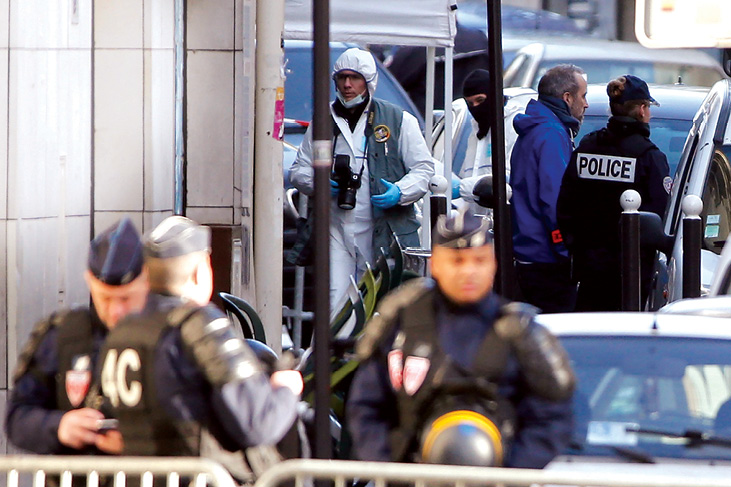
justice protects individuals and groups to make societies more resilient.
What keeps communities safe? How do justice systems respond to crime and civil disputes? Where do we look for new ideas about policing and prosecutions? Munk School scholars explore such questions around the globe, engaging with practitioners and policy-makers to determine how justice is delivered and what ensures a strong, equitable society in the face of violence and insecurity.
Education
In
Action
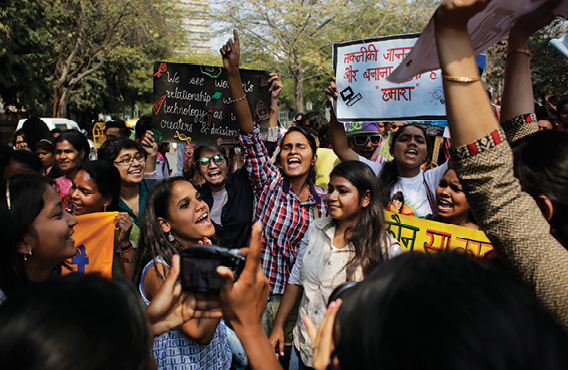
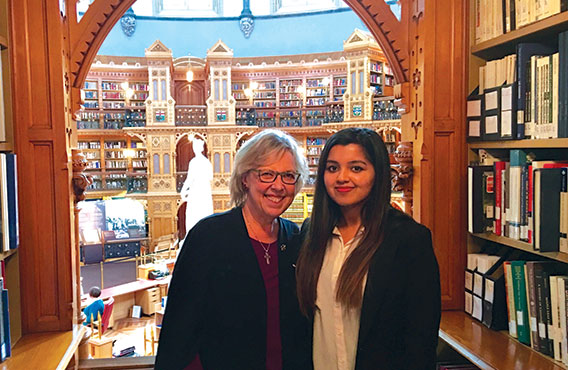
Frontline Experience
A key component of the Munk School educational approach is providing students with opportunities to gain relevant, hands-on work experience in their fields of interest. Thanks to a new alliance with the Open Society Internship for Rights and Governance (OSIRG), MGA students can now join candidates from only 14 schools worldwide to be considered for unique placements with international NGOs. The first Munk School cohort, after attending an OSIRG-led training institute in Budapest during the summer of 2015, worked with the iHub User Experience Lab in Nairobi and the Institute for Security Studies in Pretoria. In 2016, some program participants will be part of the first OSIRG student team to intern with Médecins Sans Frontières.
Learning at Work
Three MGA program Capstone Projects offered in 2015–2016 focused on global justice. Guided by Professors Carmen Cheung, Ron Levi and Stephen Toope, students conducted research for the Royal Canadian Mounted Police on strategies for monitoring fighters who return from foreign conflicts, and for Global Affairs Canada on potential Canadian foreign policy approaches to countering violent extremism and emerging human rights issues in an era of climate change.
Women in House
Munk School students and scholars investigate acute social inequities all around the world. And they also examine lingering injustices closer to home – such as the systemic gender inequality that is still evident in many areas of Canadian society.
To mark International Women’s Day 2016, a large group of female U of T students – including 10 undergraduates from the Trudeau Centre’s Peace, Conflict and Justice (PCJ) program – travelled to Ottawa to visit the Supreme Court of Canada and the federal Parliament. What drew them to the capital was “Women in House,” a program launched on campus in 2013 to promote greater female participation in Canadian politics.
“It’s fantastic to see all of these amazing women, from first-years to post-docs,” said The Hon. Carolyn Bennett, Minister of Indigenous and Northern Affairs, who co-founded the Women in House program with Tina Park – now a doctoral fellow at the Munk School’s Asian Institute. “This year’s event was everything we hoped it would be.”
For second-year PCJ student Tara Zimmit, the chance to job-shadow and interact with parliamentarians helped to ground her deeply held beliefs in everyday political realities: “Canada prides itself on being welcoming and inclusive, yet we lack the most fundamental level of inclusivity in governmental roles.”
“It’s fantastic to see all of these amazing women, from first-years to post-docs.” – The Hon. Carolyn Bennett
Research
Leadership
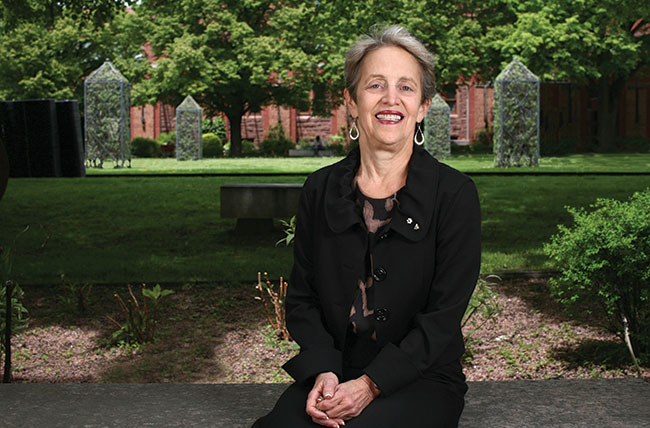
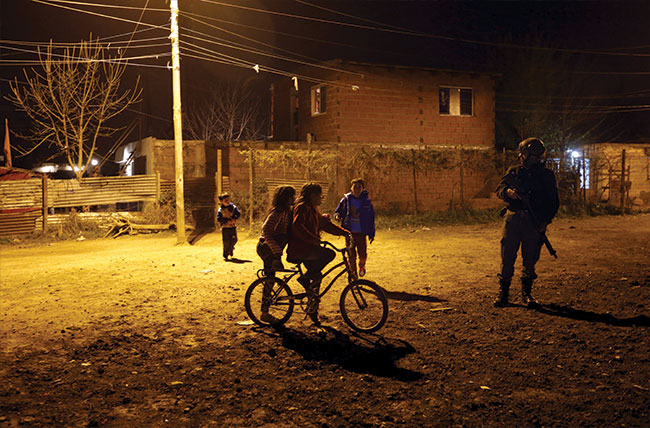
Responding to Terrorism
Effective counter-terrorism involves more than intelligence gathering and police interventions; it requires a coordinated response across the entire justice system. To help map out a future course for policy-makers, Prof. Ron Levi, Director of the Global Justice Lab and holder of the George Ignatieff Chair of Peace and Conflict Studies, has launched a new research project that will study the shifting demands of counter-terrorism on justice institutions from 2017 through 2019.
Prof. Levi is conducting his research in conjunction with the Canadian Network for Research on Terrorism, Security and Society (TSAS), which has secured $2.15 million in funding from the Social Sciences and Humanities Research Council of Canada. Established in 2012, TSAS fosters multidisciplinary research on terrorist radicalization while encouraging greater coordination between academia and government.
In a related TSAS-funded project, Prof. Levi has partnered with Prof. Janice Stein, founding Director of the Munk School and Belzberg Professor of Conflict Management, to examine the question “What works in counter-terrorism policy?” Clear answers have been elusive, as terrorist incidents remain comparatively rare and are difficult to study with the formal rigour of traditional criminological research. This new project will attempt to bridge the knowledge gap by focusing on law enforcement measures and strategies for building resilient communities.
Inside Injustice
During the past year a formal plan was completed for a new Munk School project called “Inside Justice,” yielding $1.9 million in funding from Open Society Foundations for a research initiative extending through 2018. Led by Prof. Todd Foglesong, Inside Justice will examine changes in the investigation and prosecution of homicides in Latin America, focusing specifically on Brazil, Mexico, Honduras and Colombia. The project is also analyzing recent reforms in the justice sector in Nigeria, in cooperation with the Office of the Vice-President. When not conducting extensive fieldwork in these countries or at the International Criminal Court in The Hague, researchers will be sharing their findings with Munk School students, colleagues and the general public through the Global Justice Lab.
Public
Engagement
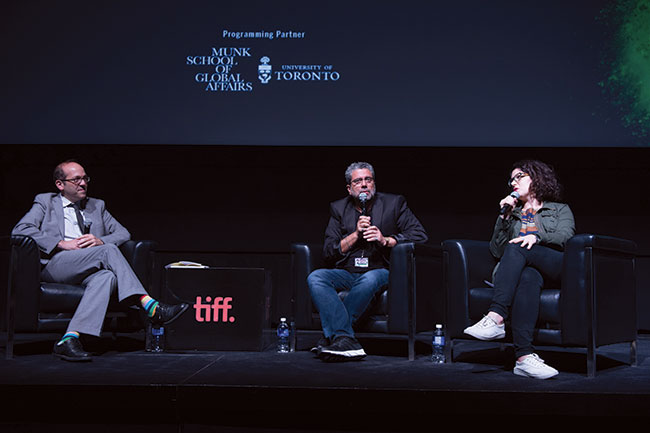
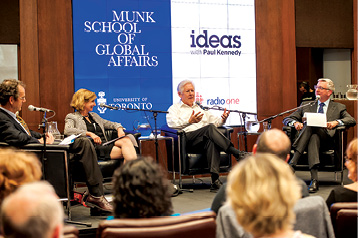
Objective Troy
In March 2016, the Lionel Gelber Foundation, in partnership with the Munk School and Foreign Policy magazine, awarded the annual Lionel Gelber Prize to Objective Troy: A Terrorist, a President and the Rise of the Drone by Scott Shane, a journalist who investigates terrorism and global justice issues for The New York Times. Founded in 1989 by the Canadian diplomat for whom it is named, the prize recognizes the year’s best non-fiction book in English on foreign affairs. This year’s competition and its impressive roster of shortlisted works earned widespread media attention, prompting 225 articles and more than 56 million media impressions globally.
Magna Carta Lives
From women’s rights to property ownership, from principles of equality to the fundamental rule of law, Magna Carta Libertatum – famously signed by King John of England at Runnymede in 1215 – has long been hailed as the cornerstone of our Western justice system. But as with many such monuments from our past, its legacy is a blend of historical fact and cultural myth.
To mark the 800th anniversary of the “great charter of liberties,” the Munk School hosted a two-evening event in May 2015 as part of its ongoing partnership with the CBC Radio program Ideas. Moderated by Prof. Stephen Toope, Director of the Munk School, “Much Ado about Magna Carta” invited panels of legal experts and scholars to engage in lively, provocative discussions about the meaning and relevance of the charter today. The resulting radio programs and podcasts were aimed at an audience of more than 1.2 million listeners across Canada and in the U.S. (Listen to part one and part two.)
The Wallenberg Legacy
In March 2016, Swedish journalist Ingrid Carlberg visited the Munk School to discuss the newly published English-language edition of her critically acclaimed biography Raoul Wallenberg: The Heroic Life and Mysterious Disappearance of the Man Who Saved Thousands of Hungarian Jews from the Holocaust. An expert panel that included H.E. Per Sjögren, Sweden’s ambassador to Canada, and The Hon. Bob Rae, lawyer, mediator and former political leader, discussed Wallenberg’s legacy and its relevance to the current Syrian refugee crisis.
Justice in Transition
A blog called “Justice in Conflict,” which examines the challenges of pursuing transitional justice in the context of violent political conflicts, has attracted more than 15,000 regular subscribers worldwide, including senior diplomats, government officials, human rights advocates, criminal tribunal staff, academic researchers and students, and members of the media. Launched in 2011, the blog is the brainchild of Mark Kersten, who joined the Munk School in 2015 as a post-doctoral research fellow. Dr. Kersten’s areas of interest include the effects of interventions by the International Criminal Court on conflict, peace and justice processes, and the role of social media in efforts to prevent mass atrocities.
Voicing Concerns
In addition to their published research and participation in conferences, panels and lecture series, Munk School faculty members regularly share their perspectives on current issues via traditional and online media. A case in point is Carmen Cheung, Executive Director of the Global Justice Lab and a Professor of Global Practice. A human rights expert who has acted as legal counsel on high-profile cases involving torture and illegal transfers of detainees, Ms. Cheung in the past year joined with colleagues from the International Human Rights Program at U of T’s Faculty of Law to bring wider attention to the use of solitary confinement in Canada – in one controversial case, for a 16-year-old asylum seeker from Syria.
Frame by Frame
As part of the Munk School’s ongoing partnership with TIFF: The Toronto International Film Festival, Prof. Stephen Toope moderated a conversation with humanitarian and retired general Roméo Dallaire and actor-director Paul Gross on the moral challenges of encountering children in conflict, as depicted in the Canadian feature film Hyena Road.
As part of TIFF’s Contemporary World Cinema series, Prof. Ron Levi spoke at the premiere of Much Loved, a feature film by French-Moroccan director Nabil Ayouch depicting the lives of sex workers in Marrakesh. And in January 2016, Prof. Levi was a commentator at a screening of the documentary Je suis Charlie by Daniel Leconte and Emmanuel Leconte, hosted by the Consulate General of France in Toronto on the first anniversary of the Paris attacks targeting Charlie Hebdo and a Kosher supermarket.

